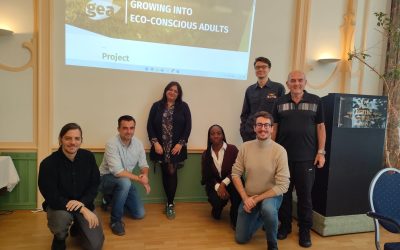The analysis of ISTAT and 1522 data reveals a significant heterogeneity in the distribution of anti-violence centers across Italy. Particularly in the South and the Islands, their number is considerably lower compared to the rest of the country. With T-ESSERE PONTI, we aim to address the system’s shortcomings by implementing “Bridge Actions” that ensure everyone’s access to support systems, adopting an intersectional approach.
While gender-based violence is a widespread issue, both globally and nationally, combating it requires long-term solutions that address the system as a whole, as well as immediate actions that provide urgent and concrete responses to those seeking support.
Among the latter, anti-violence centers, as specialized structures, serve as safe places where people can find psychological support, legal information, and practical help to deal with violence situations. Their presence also ensures the effective implementation of the Istanbul Convention, which, in Article 25, mandates member states to adopt the necessary measures to guarantee their creation and effective operation.
Since 2018, ISTAT has been collecting data on the performance and services offered by anti- violence centers nationwide. The analysis of available information shows that, although the absolute number of active centers is indeed increasing, their distribution across the country is not uniform. As the graph below demonstrates, the absolute number of anti-violence centers in the South and the Islands is significantly lower compared to the rest of Italy.
- Percentage distribution of anti-violence centers by geographical area in Italy

However, looking at the data in absolute terms does not sufficiently capture the complexity of the current situation. Referring to the numbers emerging from the 1522 mapping, which put the number of anti-violence centers (CAV) in perspective relative to the regional population, the situation appears even more heterogeneous at the territorial level. In fact, while in Umbria there is one CAV for every 43,000 women, in Sicily the average is one center for every 100,000 women. The coverage appears sufficient to meet the goals established by the Istanbul Convention only in the province of Syracuse, where there is one center for every 50,000 women.
- Number of anti-violence centres per 50,000 women

Additionally, heterogeneity also emerges concerning the number of paid employees and volunteer workers in the anti-violence centers (CAV). For instance, in Sicily and the Marche, there are approximately 2 paid employees for every 50,000 women, while in Umbria this proportion rises to 7. Although volunteer workers undoubtedly represent a crucial resource for the survival of these centers, relying heavily on volunteer work for the functioning of services could compromise their continuity and efficiency.
In conclusion, the analysis of the distribution of anti-violence centers highlights a series of territorial disparities that require targeted interventions. Although there is an increase in the absolute number of active centers, it is evident that the coverage and efficiency of services vary significantly from region to region. It is essential to address these inequalities through coordinated and intersectional strategies, ensuring equitable distribution and adequate provision of resources across all areas of the country. Furthermore, it is important to consider the impact of volunteer work in this sector, balancing the need for volunteer support with the importance of service stability and continuity. To address these challenges, T-ESSERE PONTI has engaged in constructive reflection on the difficulties women face in accessing services and support systems, adopting an intersectional perspective. Through this reflection, we have developed “Bridge Actions” aimed at implementing concrete initiatives to fill the gaps in the system and promote a culture of solidarity and awareness in the fight against gender-based violence.
T-ESSERE PONTI is a project that aims to enhance the provision of territorial services for the prevention and combat of gender-based violence through a process of social transformation. The agency of foreign women translates into effective practices the necessary shift, proposing themselves as mentors and points of reference within their communities of origin. The protagonists of this journey enthusiastically present their growth and training experiences within the framework of the “Gruppo Ponti” project. For further information contact Georgia Chondrou: georgia.chondrou@cesie.org or tessereponti@cesie.org.
About the project
COMMUNITY LINKAGE – Improving gender-based violence service provision through the empowerment of migrant women as community-based mentors, trainers and agents of change is a project funded by DG Justice – Programme CERV (2021-2027) of the European Commission.
Partners
- SURT Fundacio De Dones Fundacio Privada (Spain, coordinator)
- CESIE (Italy)
- Diotima – Centre For Gender Rights & Equality (Greece)
- Zrs Koper – Znanstveno-Raziskovalno Središče Koper (Slovenia)
For further information
Read more about COMMUNITY LINKAGE.
Contact Georgia Chondrou: georgia.chondrou@cesie.org.








